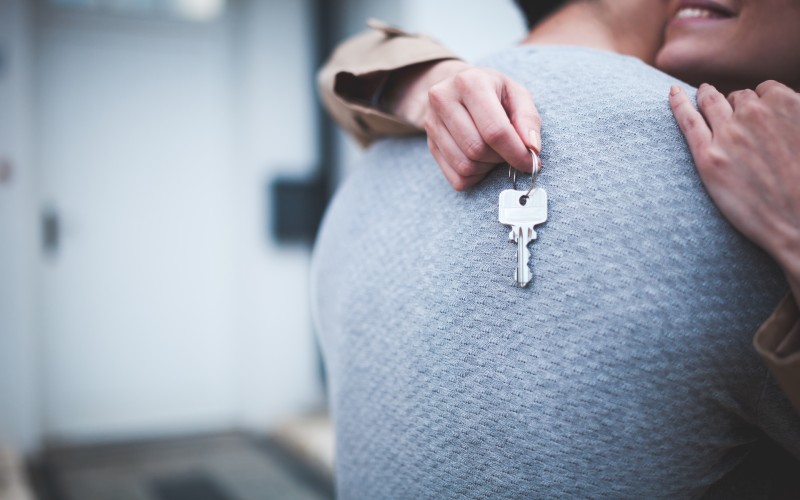
In recent years, the number of couples choosing to co-habit rather than get married or enter into a civil partnership has been ever increasing.
Open a discussion
Moving in with your partner can be an exciting time. However, before you go ahead, there are a few things that you and your partner should think about:
- reaching a clear arrangement and possibly a formal agreement about your finances.
- the ownership of assets.
- whether your contributions are equal or unequal. As an example, if one of you is providing a greater portion of the deposit towards a property than the other, you may wish to enter into a co-purchase agreement to set out the terms of the purchase and regulate what happens to the proceeds when the property is sold.
- how you will meet monthly bills
- whether you should enter into a Cohabitation Agreement. A Cohabitation Agreement can include everything that is covered in a co-purchase agreement, but it can also go further. It could, for example, cover who is contributing what financially and whether this should be on a 50:50 basis or apportioned according to your earnings. You could also include a section limiting the ability of either party to make a claim on separation or death.
- updating your Will, or even more importantly, making a Will if you don’t have one.
We understand that these discussions can be hard, and in the whirlwind of excitement leading up to moving in together can easily be forgotten about. However, it is helpful to be aware of your rights as a cohabitant on separation. As a starting point, you are not in the same legal position as couples who are married or in a civil partnership.
Rights on Separation
A cohabitant is defined by Scots law as either a member of a couple consisting of:-
- a man and woman who are (or were) living together as if they were husband and wife; or
- two persons of the same sex who are (or were) living together as if they were civil partners.
If the Court has to determine whether individuals are cohabitants, they will look at the length of time the couple have lived together, the nature of their relationship during that time, and the nature and extent of financial arrangements during that time period.
Under the Family Law (Scotland) Act 2006, a cohabitant can apply to the court for financial provision if the relationship breaks down, or one of the couple dies without a Will.
Separation
A cohabitant can make a financial claim if they can show that they have suffered an economic disadvantage as a result of separation, and that their ex-partner derived economic advantage. Unlike with married couples or couples in civil partnerships, there are no specific rules stating what a cohabitant will be entitled to. The court has wide discretion . Also, the only order which can be made is one for payment of a lump sum by one party to the other. By contrast, when a married couple divorces the court has a range of different order it can make – including transfer of a house, pension sharing and maintenance. None of these options are open to cohabitants.
It is important to note that a claim made on separation must be raised in court and served on the other party before the 1 year anniversary of the date of separation.
Death
A surviving cohabitant can make a claim against their partner’s estate if the deceased died without leaving a Will, was domiciled in Scotland, and was cohabiting with the survivor immediately before their death. The court has wide discretion in terms of the amount and type of award from the estate, but they cannot award to the cohabitant any more than they would have been entitled to as a spouse or civil partner of the deceased.
A claim made on death must be raised within 6 months of the date of death.
Main residence, Property and Money
- Occupancy Rights – If your main residence is a property owned solely by your partner and you are living there as a cohabitant, you have no automatic rights to stay there- otherwise referred to as ‘Occupancy Rights’. You are able to ask the court to grant those rights to you. If the court does grant Occupancy Rights, they will usually only do so for 6 months initially. This may be extended in some circumstances.
- Household Goods - There is a presumption that each cohabitant has a right to an equal share in household items acquired during cohabitation, unless the item was a gift or inherited from a third party. However, this presumption does not apply to money, securities, vehicles, or pets.
- Housekeeping allowance - Money derived from allowance made by either of the cohabitants for joint expenses, or, property acquired from this money will be treated as belonging to each of them in equal shares, subject to any contrary agreements between the cohabitants.
Proposed reform
There are a number of proposed changes to the current legislation regarding cohabitation , although they are yet to be implemented. The proposals include:
- a change to the definition of “cohabitant”;
- the introduction of court discretion in relation to the time limits for claims; and
- using a clearer principal based framework when making awards.
In November 2022, Thorntons Family Law Team wrote about the proposed changes to cohabitation law, our previous blog can be found here.
If you would like advice or further information about cohabitation, please contact a member of the Family Law team on 03330 430150.

